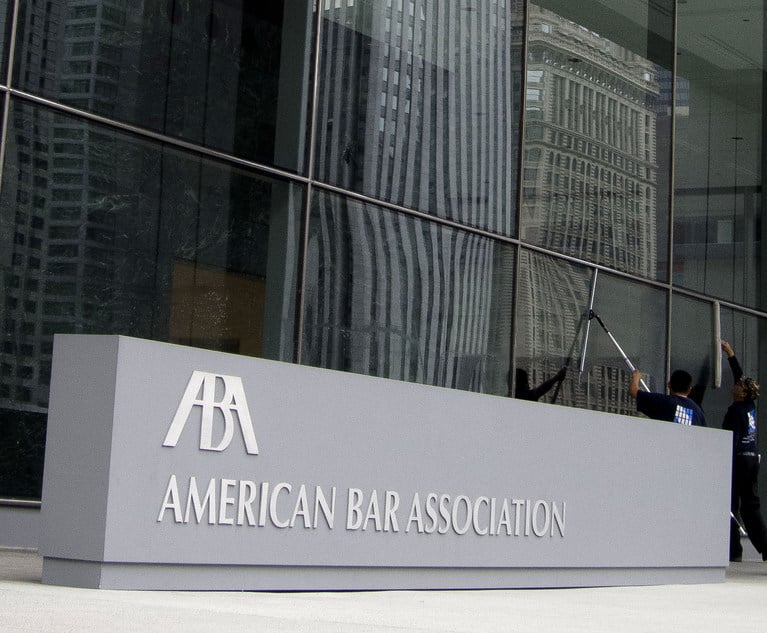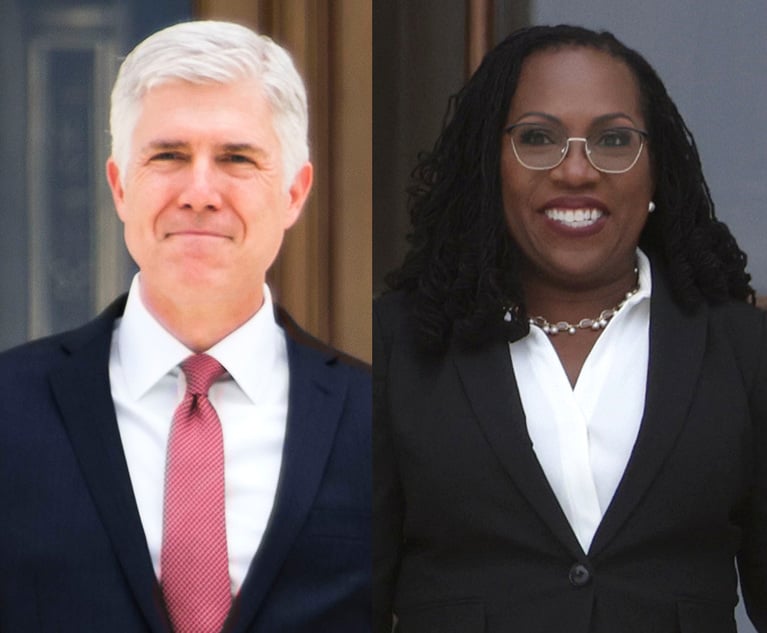In the U.S. Supreme Court’s 1999-2000 term, nearly every major contentious issue—including abortion, gay rights and school prayer—crowded the docket. But collegial relationships held throughout the onslaught among justices and their clerks, who included a young Ketanji Brown Jackson.
“You had a term in which every single, hot-button issue that could have been before the court came before the court and you had a flurry of very close 5-4 decisions, most of which involved predictable camps, and yet the law clerks as a whole had very good relationships,” recalled Amanda Tyler of the University of California Berkeley School of Law, a former clerk to Justice Ruth Bader Ginsburg that term.

 Ketanji Brown Jackson, President Joe Biden’s nominee to the U.S. Supreme Court to fill the vacancy left by Justice Stephen Breyer’s retirement, meets with Senate Minority Leader Senator Mitch McConnell (R-KY) at the U.S. Capitol, on Wednesday, March 2, 2022. Photo: Diego M. Radzinschi/ALM
Ketanji Brown Jackson, President Joe Biden’s nominee to the U.S. Supreme Court to fill the vacancy left by Justice Stephen Breyer’s retirement, meets with Senate Minority Leader Senator Mitch McConnell (R-KY) at the U.S. Capitol, on Wednesday, March 2, 2022. Photo: Diego M. Radzinschi/ALM








